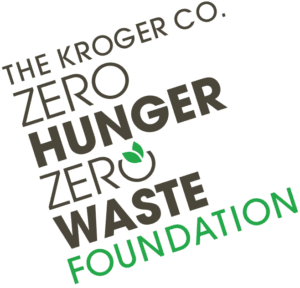Apr 26, 2023Grants seek to measure household food waste
Three universities will be targeting household food waste through $2 million in grants designed to research consumer behavior, supply chain disruptions and other factors leading to food waste.
The Foundation for Food & Agricultural Research (FFAR) and The Kroger Company’s Zero Hunger | Zero Waste Foundation are each awarding $1 million to be split among Oregon State University, The Ohio State University and the University of Florida.
According to FFAR, an estimated 35% of food produced in the U.S. is thrown away, a loss of $408 billion a year. About 37% of food waste happens in homes, although the amount is likely underestimated because of the difficulty of measuring household waste. The grants are designed to accelerate the development of bold methodologies to measure household food waste.


“Food waste represents not only the loss of nutrients but a waste of valuable resources, which puts significant strains on the environment, economy and our society,” Constance Gewa, FFAR senior program director of the Health-Agriculture Nexus Challenge Area, said in a news release. “An innovative approach to measuring household food waste is needed in order to drive change and reduce food waste.”
There are various challenges to addressing food waste at the consumer level, including consumer behavior, supply chain disruptions and sociocultural and environmental elements. Additional research is necessary to accelerate food waste reduction at the consumer level and support interventions across the food system. FFAR and Kroger’s Zero Hunger | Zero Waste Foundation are awarding the grants to advance the development of innovative food waste measurement tools and technologies.
Oregon State University — $637,733
Patrick Donnely, assistant professor at OSU’s College of Engineering, is developing a new artificial intelligence-assisted technology that enables consumers to track, measure and reduce household food waste. This AI-enabled device automatically and accurately measures food waste in kitchens. This data will contribute to a novel dataset to enable and encourage researchers to tackle the problem of food waste measurement with computer vision.
The Ohio State University — $839,670
Brian Roe, professor at The Ohio State University College of Food, Agricultural, and Environmental Sciences, and John Apolzan and Corby Martin at the Pennington Biomedical Research Center are designing a flexible approach that quantitatively measures households’ food waste and can easily be deployed by food-system stakeholders. The researchers are investigating three common measurement approaches and applying machine learning to produce a predictive model that is flexible and accurately addresses future food waste questions. This data will contribute to the development of novel datasets of food waste measurements.
University of Florida — $522,607
Ziynet Boz Ozdemir, assistant professor at the UF College of Agriculture and Life Sciences, will assess uncertainties in the measurement of household food waste to improve the understanding of common food waste quantification methods. Boz and her team are enlisting a citizen approach, training members of the public to collect data in two pilot studies that measure factors that contribute to household food waste. From this, an open-access, novel tool will be provided to stakeholders and policymakers.
“We established the Zero Hunger | Zero Waste Foundation’s Innovation Fund to help identify and scale solutions with the potential to improve food security and end food waste,” Denise Osterhues, president of The Kroger Co. Zero Hunger | Zero Waste Foundation, said in the release. “We are pleased to work with FFAR to support this important research to help reduce household food waste in the future.”
Stakeholders across the food system, including local, state and federal governments, are in need of accurate and standardized household food waste measurement methodologies and metrics. These projects are developing innovative methodologies to create efficient interventions that will reduce food waste and improve the sustainability of food systems overall.















